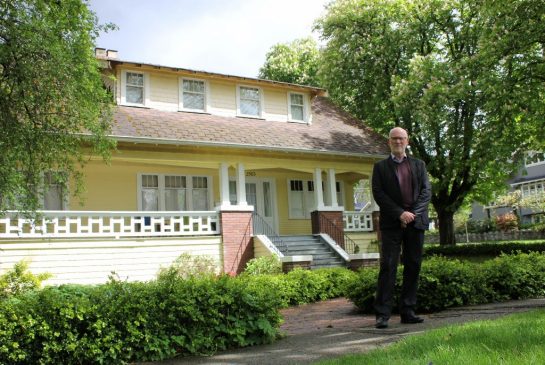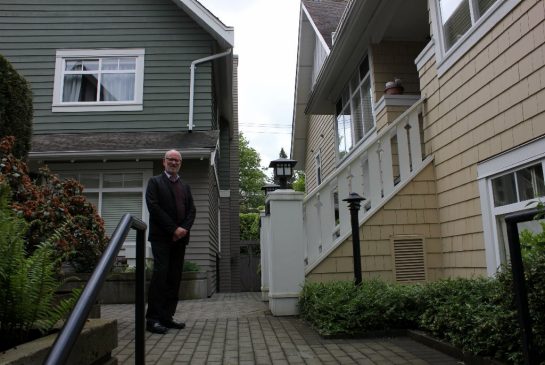
JEN ST. DENIS/METRO
The nest is empty — but many baby boomers are staying in their homes for a range of reasons, says Michael Geller, a Vancouver architect and real estate developer.
In Vancouver, it’s not uncommon to hear of young families raising two toddlers in a one-bedroom apartment and at a loss to find a larger place they can afford.
But the story is much different among home-owning baby boomers, according to Toronto-based economist Paul Smetanin, president of the Canadian Centre for Economic Analysis.
“One in four households (in Vancouver) are in an extremely precarious situation,” said Smetanin, referring to his analysis of how much pressure households are under in order to afford shelter.
“The lingering contradiction is that you have over 800,000 spare bedrooms in Vancouver, and 70 per cent of people over 65 in Vancouver are over-housed.”
In Smetanin’s analysis, a co-habiting couple living in anything more than a one-bedroom home is considered “over housed.” Homeowners who are wealthier and older are most likely to be over housed.
The number of empty bedrooms is equal to 15 years of construction at current rates, said Smetanin, who has used data from Statistics Canada and other sources to create a broad set of data about housing needs in Canadian cities.
The numbers are similar for Toronto, and policy-makers from the United States to the United Kingdom to Australia are struggling with the demographic shift. Gene Balk, a columnist at the Seattle Times, calculated in 2016 that the city had 200,000 empty bedrooms, a number that had increased 50 per cent since 2000.
“I do believe that one of the reasons people stay in their homes is because they often cannot find an alternative, acceptable housing choice,” said Michael Geller, an architect and real estate developer who lives in Vancouver.
Geller believes that means building more townhouses, coach houses and allowing bigger houses to be converted to duplexes, triplexes or four-plexes. Coincidentally, that’s also the type of housing young families are looking for, but unable to find as detached houses in the city have soared north of $1 million.
There are also compelling financial reasons to stay in the home you raised your family in: homeowners don’t pay capital gains tax when they sell their principle residence and make a profit, and some argue it makes more sense to stay in the home and leave the total appreciated gain for your estate.
In B.C., seniors are able to defer paying their property tax, and Geller believes that can also play a “psychological” part in deciding to stay. Then there’s the cost and trouble of moving to a new home in Vancouver’s super-charged market. Geller lives in southwest Vancouver, but has considered moving somewhere with better public transit
JEN ST. DENIS/METRO
Michael Geller, a Vancouver architect and real estate developer, stands in front of a townhouse development he says is a good example of housing that appeals to seniors looking to downsize from large houses.
“But when my wife looks at the cost of buying a townhouse or a duplex, she says it would be cheaper to hire a chauffeur and pay him $50,000 a year and have him live in our house than downsize into another property,” he said.
While condo developers have built many one-bedroom condos, those units are feeding investor demand, rather than meeting the needs of communities, Smetanin said. That’s where governments have a role to play with either regulations or incentives.
Geller points to one townhouse development in Kerrisdale and another in West Vancouver as examples of boomer-focused housing. Both were initially opposed by neighbours. But Geller thinks that might be changing.
“These baby boomers are the ones who are often opposing townhouse and apartment developments in their neighbourhoods for the last 30 years,” he said. “Now that they’re ready to perhaps move into a new housing choice, I think there’s a greater willingness to accept sensitive infill development.”
References: www.metronews.ca


